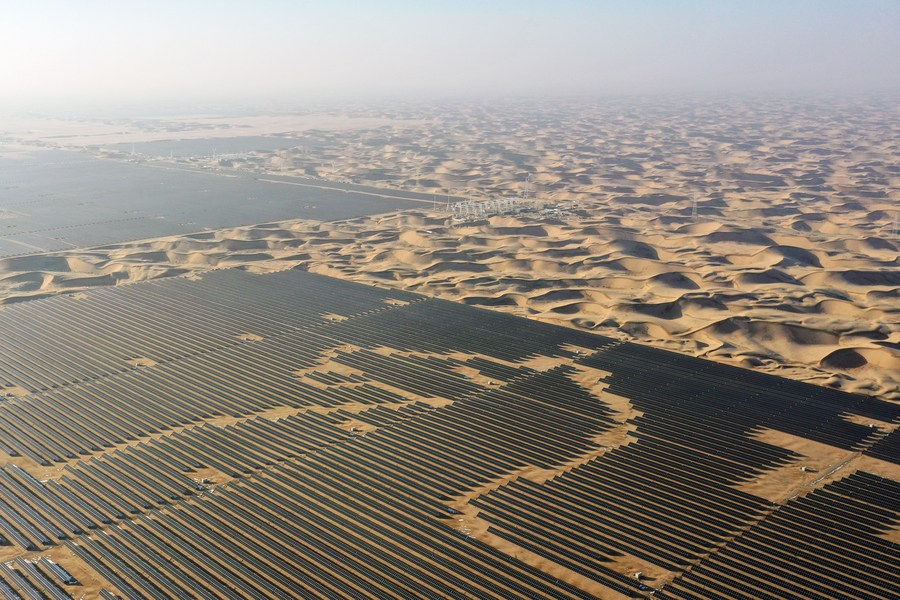In a world that’s increasingly recognizing the urgency of sustainable energy development, a top United Nations official has lauded China’s monumental strides in the realm of renewable energy. Damilola Ogunbiyi, the special representative of the UN Secretary-General for Sustainable Energy for All, has highlighted China’s pivotal role in the journey towards realizing the United Nations’ Sustainable Development Goal of ensuring universal energy access. This groundbreaking revelation came during an exclusive interview with China Daily following the third Belt and Road Forum for International Cooperation held in Beijing from October 17 to 18.
Asia Leads the Way in Energy Access Progress
As nations grapple with the challenge of attaining Sustainable Development Goal 7, which aims to provide “affordable, reliable, sustainable, and modern energy for all” by 2030, Ogunbiyi pointed out a stark disparity between Asia and Africa. According to the latest SDG 7 report, Asia has made significant progress towards this goal, whereas Africa lags behind. Asia still has an estimated 69 million people without electricity access, whereas in Africa, that number exceeds a staggering 500 million. The disparity underscores the need for concerted global efforts to bridge this gap.
China’s Renewable Energy Prowess on the World Stage
China has emerged as a global powerhouse in the realm of renewable energy, particularly in solar panels, wind power equipment, and lithium batteries. Ogunbiyi noted that over 50 percent of these critical components are produced in China, making it a dominant force in the renewable energy market. A significant factor contributing to China’s success lies in its burgeoning manufacturing sector, which acts as a catalyst for the production of essential renewable energy equipment.
A Beacon of Hope for Developing Nations
Ogunbiyi emphasized that China’s expertise in renewable energy can be a guiding light for other developing countries. She underscored the importance of crafting inclusive policy and regulatory frameworks that promote manufacturing and development within the renewable energy sector. Additionally, substantial investments and the allocation of a portion of GDP and revenue are essential steps in fostering sector growth. China’s journey in renewable energy development serves as a blueprint for other nations striving to embark on a similar path towards sustainability.
Ogunbiyi highlighted the pivotal role of capacity building and regulatory support that China can offer to developing nations. China’s achievements can pave the way for other countries, assisting them in developing their own renewable manufacturing industry, thus transforming the global landscape for the better.
With promising progress already evident in Sino-African cooperation in green energy, Ogunbiyi expressed her optimism for more extensive collaboration between China and African nations. As Chinese companies have been actively involved in large infrastructure projects across Africa, transitioning to renewable energy development appears to be a natural progression, bolstering sustainable energy endeavors on the continent.
Ogunbiyi also recognized that the demand for solar energy products currently outstrips supply. This presents an exciting opportunity for China to play an even more significant role in pushing global solar energy development, as the world collectively moves towards the shared goal of achieving net-zero emissions.
In light of the recent signing of cooperation agreements on renewable energy development at the Belt and Road Forum, Ogunbiyi commended the enthusiastic participation of emerging economies that view China as a robust partner in building their green and sustainable future. As the global community grapples with the critical challenge of energy access for all, China’s leading position in renewable energy development offers a glimmer of hope, pointing the way forward in this pressing endeavor.















